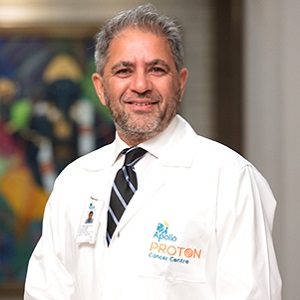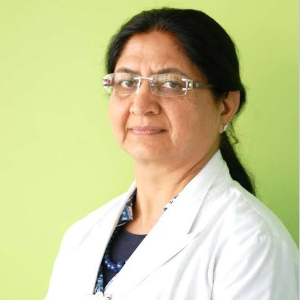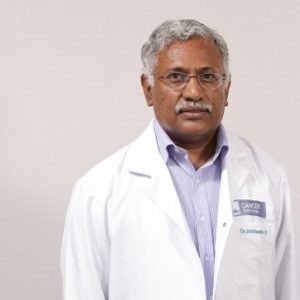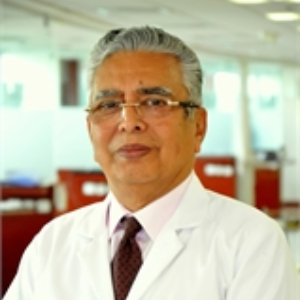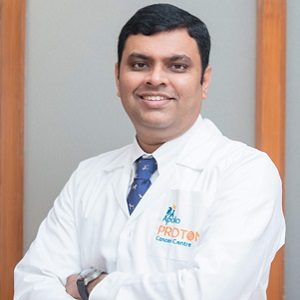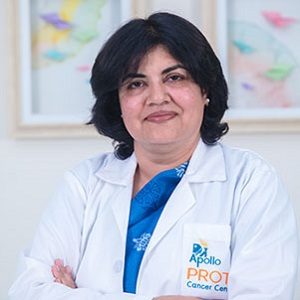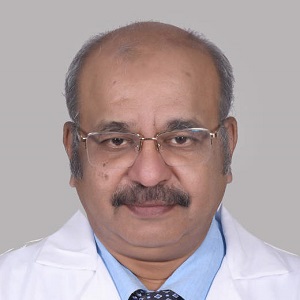Best Brachytherapy Doctors & Hospitals in India
- Radiation Oncologist, Chennai, India
- Over 20 years’ experience
Profile Highlights:
- Dr. Rakesh Jalali has been one of the top Radiation Oncologists in the country due to his utter dedication to Cancer Research and Education.
- He has been awarded the Oncologist Award by Medscape in 2014 and also received the top radiation oncologist award for consecutive 3 years from 2014 onwards.
- Over the years of his career, he has conducted path-breaking research to enhance the quality of cancer treatment.
- Radiation Oncologist, Gurugram, India
- Over 32 years’ experience
Profile Highlights:
- Dr. Tejinder Kataria is a renowned radiation oncologist who holds an experience of about 32 years in the field of radiation oncology.
- She founded the Department of Radiation Oncology at Artemis Health Institute and Rajiv Gandhi Cancer Institute.
- Her interests lie in stereotactic radiotherapy (SBRT), Image-Guided Radiotherapy (IGRT), Intensity Modulated Radiotherapy (IMRT)and 3-D Conformal Radiation (3D CRT), PET-CT, MRI, SPECT, DSA and CT-Simulator fusion for treatment planning.
- Radiation Oncologist, Chennai, India
- Over 25 years’ experience
Profile Highlights:
- Dr. Mahadev P is a radiation oncologist with 25+ years of experience and has played a major role in starting the Diplomate of National Board course in Radiotherapy in 2005.
- After getting trained in Australia, Dr. Mahadev P started Prostate brachytherapy at Apollo Specialty Cancer Hospital.
- Dr. Mahadev is also trained in Cyberknife radiosurgery – the only system in the world to treat tumors in the body with sub-millimeter accuracy.
- Radiation Oncologist, Gurugram, India
- Over 40 years’ experience
Profile Highlights:
- Dr. Subodh Chandra Pande is a well-known radiation oncologist in India. He has a long and rich clinical and teaching experience in the specialty of radiation oncology.
- He included a Dual Energy Linear Accelerator with Multi-Leaf Collimator at Bhagwan Mahaveer Cancer Hospital and Research Centre (BMCHRC), Jaipur & which was a first for the State of Rajasthan.
- Radiation Oncologist, Chennai, India
- Over 24 years’ experience
Profile Highlights:
- Dr. Rathna Devi is a senior Radiation Oncologist who has an experience of 24 years in the field.
- She completed MBBS from M.S. Ramaiah Medical College, Bangalore University, and a Diploma in Radiotherapy from Madras Medical College, Dr. MGR Medical University.
- Dr. Rathna Devi’s areas of expertise include Cranial Cyberknife Radiosurgery, Intensity Modulated Radiotherapy (IMRT), and Stereotactic Body Radio Therapy (SBRT).
- Radiation Oncologist, Chennai, India
- Over 15 years’ experience
Profile Highlights:
- Dr. Srinivas Chilukuri has been in one of the top layers of Oncologists in the country.
- He has been the clinical lead in advanced Radiation Oncology and has successfully trained more than 200 students all over the Indian Subcontinent.
- He was one of the first radiation oncologists to develop expertise and experience in the Volumetric Modulated technique for Paediatric and Prostate Cancer.
- Radiation Oncologist, Chennai, India
- Over 10 years’ experience
Profile Highlights:
- Dr. Ashwathy Susan Mathew has been an eminent doctor hailing from the Department of Radiation Oncology Apollo Proton Cancer Centre, Chennai.
- She has performed extensive research in the diagnosis and treatment of Gastro-Intestinal Cancers and related metastasis.
- She has been awarded the Parvati Devi Gold Medal for Best Paper at the 34th Annual Conference of the Association of Radiation Oncologists of India.
- Radiation Oncologist, Chennai, India
- Over 33 years’ experience
Profile Highlights:
- Dr. Sapna Nangia is a highly proficient clinical and radiation oncologist with versatile experience in cancer management.
- She has an experience of more than thirty-three years as a doctor and twenty-four years as a doctor across various eminent institutions in the country.
- Dr. Sapna Nangia has been trained for proton therapy at Miami Cancer Care, New York
- Radiation Oncologist, New Delhi, India
- Over 20 years’ experience
Profile Highlights:
- Dr. G K Jadhav is one of the leading radiation oncologists in India.
- He has a complex understanding of cancer biology, clinical care, and radiation physics.
- Dr. Jadhav has an experience of more than 20 years in the field of radiation oncology.
- Radiation Oncologist, Gurugram, India
- Over 20 years’ experience
Profile Highlights:
- Dr. Indu Bansal Agarwal is the Director and Senior Consultant in the Department of Radiation Oncology at Narayana Superspeciality Hospital, Gurugram.
- Dr. Indu Bansal Agarwal is extremely skilled in high-end techniques such as SRS, FSRS, IMRT, intraluminal, and interstitial brachytherapy. Her special areas of interest are Pediatric tumors, Central Nervous System Tumors, and Breast, Head and Neck Cancers.
- Dr. Indu Agarwal has co-authored chapters of several books and also has numerous publications to her credit in National and International Journals.
Best Brachytherapy Hospitals India
Apollo Hospital, Chennai
- City: Chennai, India
Hospital Highlights:
- Apollo Hospitals, Chennai, is one of the best hospitals for heart care in India. Over the years, Apollo has expanded all over India, as a healthcare chain.
- India’s first ‘Only Pancreas’ transplant was performed in Apollo Hospital. The hospital is known for successfully performing Asia’s first en-bloc combined heart and liver transplant, and over the years, it has attained a remarkable achievement in the global healthcare space. Around 3-4 organ transplants are performed in the hospital per day.
- Equipped with over 500 beds, this hospital in Chennai was established in 1983 and since then has been among the most preferred hospital for patients from all over the world.
- The hospital holds accreditation of the NABH and JCI and is the first hospital in India to be ISO 9001 and ISO 14001 certified. It is also the first South Indian Hospital to receive subsequent reaccreditation from the JCI USA 4 times.
Artemis Hospital, Gurugram
- City: Gurugram, India
Hospital Highlights:
- One of the most well-known hospitals in the Delhi NCR, Artemis Hospital is the first hospital in Gurugram to get accredited by the Joint Commission International.
- With more than 40 specialties, the hospital has been designed to be one of the most technically advanced hospitals in the country, with the best medical and surgical health care. The hospital has eleven special and dedicated centers, for Heart, Cancer, Neurosciences, etc.
- The latest technologies in the hospital include Endovascular Hybrid Operating Suite and Flat panel Cath Labs for the cardiovascular department, 3 Tesla MRI, 16 slice PET CT, 64 Slice Cardiac CT Scan, HDR Brachytherapy, and highly advanced Image Guided Radiation Therapy techniques (LINAC) are installed in the hospital.
- The hospital has won several awards as well, since its inception.
BLK Max Super Specialty Hospital, New Delhi
- City: New Delhi, India
Hospital Highlights:
- Equipped with 650 beds, BLK Superspecialty Hospital is the largest stand-alone private sector hospital in Delhi.
- With over 1500 healthcare providers and 150 globally renowned super specialists, the hospital is one of Asia’s largest Bone Marrow Transplant Centres. The hospital is known for having some of the best cancer doctors in the country.
- The hospital is NABH and NABL accredited and was inaugurated by the first Prime Minister of India. Pt. Jawahar Lal Nehru.
CARE Hospitals, Hyderabad
- City: Hyderabad, India
Hospital Highlights:
- CARE Hospitals were established in the year 2000, by CARE Group.
- The multispecialty hospital has 435 beds, including 120 critical care beds, with an annual inflow of 180000 outpatients and 16,000 in-patients.
- The hospital provides specialty medical services in Cardiology, Cardiothoracic Surgery, Pediatric Cardiology, Pediatric Cardiothoracic Surgery, Neurology, Neurosurgery, Nephrology, and Urology.
- The hospital has the first dual source, 128 slice CT scanner (for high precision cardiac imaging) – the first of its kind in south India.
- The hospital offers a wide range of accommodation facilities for the convenience of its varied patient base, ranging from general wards to super deluxe rooms.
CK Birla Hospital, Gurugram
- City: Gurugram, India
Hospital Highlights:
- The CK Birla Hospital in Gurugram is a NABH-accredited multi-specialty hospital.
- The hospital strives to increase the quality of healthcare by focusing on UK NHS nurse and midwife training requirements. Policies and practices derived from the National Institute for Health and Treatment Excellence (NICE) recommendations in the United Kingdom ensuring that a strong focus on safety, high-quality clinical care, and sanitation is maintained.
- The hospital’s cutting-edge technology and facilities allow for real-time communication and seamless collaboration among caregivers, ensuring accuracy and the best possible results. Those with foreign experience and accreditations make up part of the hospital’s team of clinicians.
Fortis Hiranandani Hospital, Mumbai
- City: Mumbai, India
Hospital Highlights:
- Fortis Hiranandani hospital was established in 2007.
- The hospital is an advanced tertiary care, multi-specialty hospital equipped with 149 beds.
- The hospital is equipped with a super ICU to provide emergency medical care to critically ill patients.
- The hospital is NABH accredited.
- The critical care facility in the hospital is augmented with the state-of-the-art facilities that facilitate speedier diagnosis and efficient monitoring.
- The hospital provides specialty medical services in cardiology, orthopedic science, pediatric science, neurology, diabetic care, urology, nephrology, ENT, obstetrics, gynecology, cosmetic surgery, bariatric surgery, neuro and spine care.
Fortis Hospital, Mulund, Mumbai
- City: Mumbai, India
Hospital Highlights:
- Fortis Hospital in Mulund is a 315-bed multi-speciality tertiary care hospital with five JCI accreditations that offers a wide variety of diagnostic and therapeutic services. The Fortis Hospital in Mulund delivers patient-centred treatment with cutting-edge technology, highly skilled and experienced surgeons, and paramedical staff.
- This institution houses Maharashtra’s largest multi-organ transplant centre. It is also the first heart transplant centre in western India to conduct 100 or more consecutive heart transplants in under four years. It is the only hospital in the city to have multi-organ transplants and has handled the youngest patient for angioplasty. Fortis Hospital Mulund now boasts the first advanced surgical robot in central Mumbai.
- Cardiology and heart surgery, urology, nephrology, neurosciences, orthopaedics, digestive care, emergency and critical care, and maternity care are among the services provided by the hospital.
Fortis Hospital, Anandpur, Kolkata
- City: Kolkata, India
Hospital Highlights:
- Fortis Hospital, Anandapur, Kolkata is a world-class super-speciality equipped with the latest technologies in the medical world.
- The hospital is NABH accredited.
- This state-of-the-art facility specializes in cardiology and cardiac surgery, urology, nephrology, neurosciences, orthopaedics, digestive care, emergency care and critical care.
- The hospital, governed by integrated Building Management System (IBMS), has a pneumatic chute system, for quick vertical and horizontal transportation between floors, facilitating speedy transfer of patient specimens, documents, reports, and medicines to the concerned departments.
- The hospital also has a nephrology department with over 28 advanced dialysis units.
Fortis Hospital Banerghatta, Bengaluru
- City: Bengaluru, India
Hospital Highlights:
- Fortis Hospital Bannerghatta, Bengaluru was established in 2006.
- The hospital is a 276 bedded multi-specialty tertiary care facility.
- The hospital specializes in cutting-edge medical technology and dedicated patient care services.
- The hospital is equipped with state-of-the-art technologies like trans-radial angioplasty, trans-abdominal cardiac surgery, and computerized TKR navigation surgery.
- The hospital provides specialty medical services in cardiology, cardiac surgery, orthopedics, neurology, neuro-surgery, GI, and Minimal Access Surgery (MAS).
Fortis Hospital, Shalimar Bagh
- City: New Delhi, India
Hospital Highlights:
- Fortis Hospital in Shalimar Bagh is a multi-super specialty hospital that strives to provide world-class patient care by leaving no stone unturned.
- Fortis, Shalimar Bagh, with 262 beds and a 7.34-acre footprint, provides the best level of medical care through its team of doctors, nurses, technicians, and management professionals.
Brachytherapy
Gone are the days when Cancer Treatment only meant chemo or external radiation therapy. Thanks to the medical science advancement, cancer treatment methods have undergone some recent changes with new, more focused treatment methods cropping up on the scene! Brachytherapy is one such treatment method that focuses on cancer tumors by placing small radioactive implants as close to the tumor location as possible.
One of the primary reasons why Brachytherapy is recommended, because this therapy focuses on high doses over a small space with the radiation concentrating on the tumor and not on the surrounding tissues or cells. This prevents damage or harm to the surrounding areas of the tumor.
Now you must be wondering how Brachytherapy works with such precision and we’ll get to that, but before we do, let’s breakdown the basics of this treatment style starting with the question-
What is Brachytherapy?
In its simple form, Brachytherapy can be defined as a type of internal radiation in which an implant, which can be anything from wires or seeds to capsules, with a radiation source in it is directly placed inside the body, closer to the tumor. Also known as Internal Radiation Therapy, this form of therapy can effectively shrink the tumor size if not downright eliminate it from your system and can be used to treat cancer types such as-
- Lungs
- Breast
- Prostate
- Head & neck
- Eye
- Uterus, etc.
What are the Different Brachytherapy types?
Primarily, there are two types of Brachytherapy:
Low Dose Rate (LDR) Brachytherapy
- Low Dose Brachytherapy also known as permanent brachytherapy, is a continuous treatment process where a radioactive implant is permanently inserted (either manually or through a machine) in your body and a low dose of radiation seeps out of it continuously for weeks, maybe months, depending on the intensity or growth rate of the tumor. The radioactive implant will release a particular dose of radiation and would focus on gradually shrinking or weakening the tumor.
- In this procedure, you may be asked to detain yourself in the hospital due to the presence of radiation within your body. Even though it’s not harmful, you’ll be kept in a private room with limited visitor access (no children or pregnant women).
- The insertion of the brachytherapy device will not be painful since in most cases anesthesia is used to reduce discomfort. In fact, the presence of the radioactive implant in your body shouldn’t cause any pain or discomfort and if it does, notify your medical team immediately.
High Dose Rate (HDR) Brachytherapy
- High Dose Brachytherapy also known as temporary brachytherapy, is more of a session-wise treatment procedure where radioactive implants are temporarily placed within the body and the therapy continues for a few minutes, up to half an hour itself. Post this, the temporary radiation tube is removed and you can return back to your normal lifestyle without any hassle.
- Since HDR Brachytherapy session is brief, these are recommended for outpatients only which means you don’t have to stay back in the hospital or in isolation. Your medical team may recommend up to 2 sessions of a few minutes each in a day and once the tube is removed, you are free to go. You will also not be radioactive which means you can meet people after your session.
- During the HDR procedure, the radioactive material will be inserted using a computerized machine. Your medical team will leave you alone in the room to avoid unwanted exposure but they will closely monitor you from a nearby room. You can notify them if you feel discomfort or pain, but in most cases, the patients don’t. Once the procedure is done, your medical team will come back in, remove the radiation device and you’ll be free to move about.
Who will your medical team consist of?
Much like any other cancer cure team, there will be some core professionals consisting of radiation oncologists, radiation therapists, dosimetrist to measure your dose, a general physicist on standby (for health ailments occurring during the procedure). There will also be a support team of anesthesiologists, surgeons (to insert or extract implants) and nurses for general care during and after the procedure.
How do you prepare for your brachytherapy?
Once diagnosed and determined, your medical team will decide if Brachytherapy is a suitable option for your condition. Once determined, you will be asked to share a detailed report of your medical history including ongoing medications, health supplements, etc. Consult with your healthcare team for dietary regulations and if any is necessary or not! Your doctor may prescribe certain clinical tests to understand your condition better which can be in the form of :
- EKG
- MRI/ CT scan / Ultrasound
- Certain blood tests
- Chest X-Ray or other imaging tests
- Bowel preparation
What to expect during the Brachytherapy procedure?
Now let us give you a step by step breakdown of what you might expect during this procedure!
Pre-procedure
You’ll have a brief meeting with your medical team before the Brachytherapy procedure during which your doctor/nurse will go over some preliminary exams which may include imaging tests, physical exams, discussing the procedure including side-effects and so on. During this period, patients are requested to share an in-depth report of their medical histories which should also include ongoing medication, intake of health supplements or blood thinners such as aspirin and more. You can even discuss post-procedure care along with dietary regulations or preventative measures.
During the procedure
So by now, you’re aware that Brachytherapy requires focused radiation to eliminate cancer cells, but are you aware of where the implants are placed? Even though the aim is to place the implants as close to the tumor as possible, there are a lot of variables that need to be taken into account. For instance, there are 3 primary locations that are frequently used and they can be:
- Intracavitary Treatment- In this method, the implant is inserted inside cavities within the body, such as uterus or breasts
- Interstitial Treatment- In this method, the implant is inserted right inside the tumor mass.
- Internal Radiation Therapy- In this method, the radiation is inserted in the form of a medicine, preferably through a vein or into a body cavity.
Depending on the procedure type you may have to stay back in the hospital for a few nights or be in an isolated room while your temporary radiation procedure takes place. You can refer to our Different Brachytherapy Types segment to know more about this.
Post-procedure radiation management & brachytherapy
There is always a chance that the radiation source in your body may make you radioactive for a brief span of time which is why patients are often requested to stay indoors, preferably isolated for a while. This is more common in high-dose brachytherapy where the radiation source is implanted inside the body.
This also means visitors with chronic illnesses, children and pregnant women should avoid coming in contact with you. In fact, visitor meet and greet should be kept zero or at the minimum to avoid unnecessary exposure.
FAQs
1. What are some of the Brachytherapy side effects I should be aware of?
Both LDR and HDR may come with certain side-effects. The most immediate ones that occur right after the procedure can be urinary problems including blood in the urine or frequent need to pass urine. Some later symptoms may include constipation.
2. How long will the implant stay in my body?
This solely depends on your cancer cure rate. Depending on the severity of the condition or your body’s reaction to this procedure, the implants may stay for weeks and even months. However, once the radiation oozes out of the implants, they won’t stay active anymore.
3. How would doctors know if the procedure is working or not?
4. Will I feel pain and discomfort during this procedure?
Even though the implant plantation itself can be a little painful (which is why doctors use anesthesia for this part), once the implant is inside, you shouldn’t feel any pain or discomfort.

